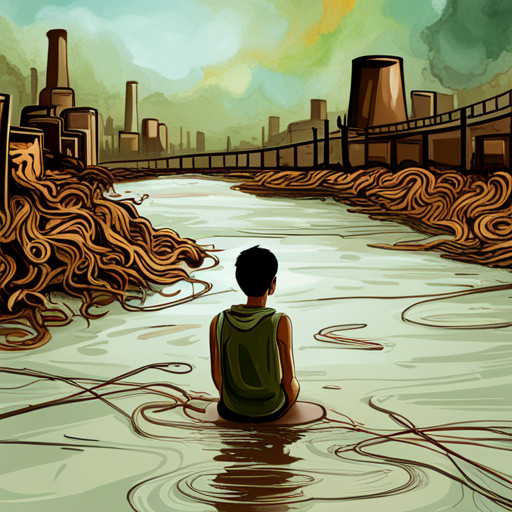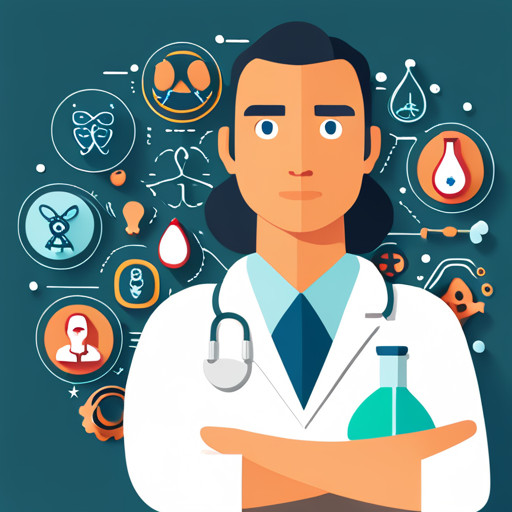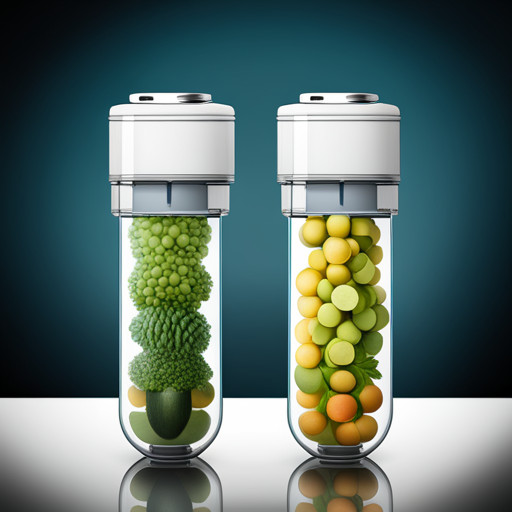Unraveling the Connection Kidney Cancer and Toxic Water
Recent research has initiated an exploration into the intricate relationship between toxic water consumption and the prevalence of kidney cancer.

This study elucidates how contaminants in water contribute to renal carcinogenesis, reviews related case studies, and discusses the role of government in ensuring water safety.
The potential influence of dietary habits on kidney health and cancer prevention is also considered, offering a holistic approach to understanding this complex issue.
Key Takeaways
- Kidney cancer can be caused by various risk factors, including exposure to toxic substances in water.
- It is important to ensure access to clean and safe drinking water to protect kidney health.
- Toxic water can have severe health effects on individuals, and identifying and addressing contamination sources is crucial.
- Chronic exposure to certain toxins, such as those found in alcohol and tobacco, can lead to kidney damage and chronic kidney disease.
Understanding Kidney Cancer: A Brief Overview

Understanding kidney cancer necessitates a comprehensive exploration into the disease's pathology, including its causes, types, stages, symptoms, and treatment options. This understanding begins with grasping Kidney Anatomy Basics, which involves the study of kidneys' structure and functions. Positioned on either side of the spine, these bean-shaped organs are responsible for filtering waste products, excess water, and other impurities from the blood.
The Cancer Development Process in the kidneys often begins in the lining of tiny tubes (tubules) in the kidney. This type of kidney cancer is called renal cell carcinoma, the most common type of kidney cancer in adults. A less common type of kidney cancer is transitional cell carcinoma, which affects the tissue lining the renal pelvis.
Kidney cancer can be categorized into four stages, dependent on the size of the tumor and the extent of its spread. Symptoms may vary but commonly include blood in the urine, back pain, and unexplained weight loss.
Treatment options are diverse and depend on the stage, type of kidney cancer, and overall health. These may include surgery, targeted therapy, immunotherapy, and radiation therapy.
Despite the advancements in medical science, the exact cause of kidney cancer remains unclear. However, several factors can increase the risk, such as smoking, obesity, and exposure to certain substances like asbestos or cadmium. Therefore, understanding the link between kidney cancer and potential environmental toxins is of paramount importance in preventing and treating this disease.
The Role of Water in Our Health

The significance of hydration in maintaining overall health is often underscored, yet the quality of the liquid consumed plays a crucial role as well. It is crucial to understand the importance of hydration and the subsequent need for water purification techniques.
Hydration is a vital physiological process that aids in maintaining body temperature, supporting metabolic functions, and providing essential nutrients to cells. It also plays a role in ensuring the smooth functioning of body systems, including the cardiovascular, respiratory, and renal systems. However, the benefits of hydration can only be fully realized when the water consumed is clean and free from harmful contaminants.
This is where water purification techniques come into play. These methods aim to remove impurities from water, making it safe for consumption. These impurities can be physical, such as sediment or organic material; chemical, like heavy metals or pesticides; or biological, such as bacteria, viruses, and other pathogens. Techniques for water purification vary widely, from simple boiling or filtration to more complex processes like reverse osmosis, distillation, or ultraviolet disinfection.
Despite the availability of a myriad of water purification techniques, access to clean, safe drinking water remains a global challenge. This not only hampers the hydration importance but also poses serious health risks, including the risk of kidney disease and cancer. Therefore, ensuring the purity of water consumed is not just a matter of hydration, but it is also a vital concern for overall health and wellbeing.
An Insight Into Toxic Water

Toxic water, characterized by the presence of harmful substances such as heavy metals, pesticides, and microbial contaminants, poses a significant threat to health and the environment.
The sources of toxic water are diverse, ranging from industrial effluents and agricultural runoff to inadequate waste management and natural geological formations.
An exploration of the impact of these contaminants on human health reveals a range of potential effects, including but not limited to, chronic diseases, acute illnesses, and the disruption of vital physiological processes.
Defining Toxic Water
Defining toxic water involves examining the presence of harmful substances, such as chemicals, waste material, and other contaminants, that exceed safe limits and pose a significant risk to human health and the environment.
The study of water contamination reveals the introduction of detrimental elements into the water bodies. Subsequently, these contaminants render the water unfit for consumption, leading to potential harm to both aquatic life and humans.
The implications of consuming this contaminated water can be dire, leading to severe health complications. In this context, kidney diagnostic becomes crucial. It is a process to detect any abnormalities or diseases in the kidneys, often resulting from toxic water.
Therefore, understanding toxic water is a pivotal step in mitigating and preventing severe health consequences.
Toxic Water Sources
Identification of contamination sources is an essential aspect of addressing water pollution. Typical origins of water pollution range from industrial waste to agricultural runoff. The primary pollution sources include:
- Industrial waste, which often contains heavy metals and other harmful substances.
- Agricultural runoff, which may include pesticides, fertilizers, and animal waste.
- Sewage and wastewater, which can contain a variety of pollutants from household and commercial waste.
- Radioactive substances, which can result from natural sources or human activities such as mining and nuclear power plants.
Understanding these sources is crucial for assessing their contamination effects. Such effects might involve alterations in aquatic ecosystems, risks to human health, threats to wildlife, and potential disruptions in water supply.
Comprehensive knowledge about pollution sources is integral to mitigating water contamination.
Impact on Health
Exposure to contaminated water sources can lead to serious health complications, including gastrointestinal illnesses, reproductive problems, and neurological disorders. The subsequent rise in healthcare costs, due to increased disease prevalence, becomes a significant societal burden.
Rigorous screening methods are therefore paramount in detecting potential contaminants early, to proactively mitigate health hazards. These methods encompass water quality tests, biomonitoring, and health surveillance.
The correlation between toxic water and kidney cancer is an area of ongoing research. There is a growing body of evidence suggesting that long-term exposure to certain water contaminants can increase the risk of developing this disease. Consequently, risk reduction strategies and improved water management practices are essential.
This includes the implementation of stringent water quality standards and regular monitoring protocols.
How Toxic Water Affects the Kidneys

Research indicates a strong correlation between the ingestion of toxic water and the subsequent development of kidney cancer. The human kidneys, functioning as vital filters, are susceptible to the adverse effects of impurities within ingested water. The kidneys' inherent role in detoxification, waste expulsion, and blood filtration makes them vulnerable to damage from water-borne toxins. Given this, the link between water purity and kidney health cannot be overstated.
Toxic water typically contains harmful substances such as heavy metals, pesticides, and industrial waste. These toxins, when ingested, can infiltrate the kidney filters and cause damage. This damage may manifest in several ways:
- Chronic Kidney Disease (CKD): This progressive condition is associated with the gradual loss of kidney function over time. It is often a precursor to kidney cancer.
- Kidney Stones: The formation of hard deposits made of minerals and salts in the kidneys can be exacerbated by the presence of toxins in water.
- Kidney Infection: Harmful bacteria present in impure water can lead to infections in the kidneys, causing pain and other symptoms.
- Renal Cell Carcinoma: This is the most common type of kidney cancer, and its occurrence has been linked to exposure to certain toxins.
Case Studies: Kidney Cancer Linked to Toxic Water

Moving from the effects of toxic water on kidneys, the focus now shifts to empirical evidence drawn from case studies that elucidate the link between kidney cancer and toxic water.
Notably, these studies underscore the interaction between environmental factors, such as contaminated water, and genetic predispositions towards kidney cancer.
In-depth research has demonstrated that exposure to toxic water can instigate or accelerate cancer progression, particularly in individuals with genetic predispositions for kidney cancer. These predispositions may involve mutations in specific genes that regulate cell growth and division. When these genes are altered or damaged, they can initiate uncontrolled cell growth, leading to the development of kidney cancer.
Several case studies have substantiated this connection. For instance, studies conducted in regions with high water toxicity have shown a significantly higher prevalence of kidney cancer compared to areas with cleaner water sources. These observations suggest that water contaminants can act as carcinogens, triggering cancer in genetically predisposed individuals.
In addition, longitudinal studies have revealed that chronic exposure to toxic water can lead to cumulative genetic changes, thereby exacerbating cancer progression. These changes can make the cancer more aggressive and resistant to treatment, posing a major challenge to healthcare providers.
Research Findings: The Kidney Cancer-Toxic Water Connection

Scientific findings have further substantiated the link between contaminated hydration sources and renal malignancies, shedding light on the significant public health implications of environmental pollution. This link, solidified through rigorous epidemiological studies, accentuates the importance of clean water for overall human health, in particular, renal health.
Several factors have been identified that strengthen the link between polluted water and kidney cancer. These include:
- Prolonged exposure to water contaminants such as heavy metals and organic solvents.
- The interplay between genetic predisposition and environmental factors, leading to a higher risk of developing renal malignancies.
- The lack of access to clean water, forcing individuals to consume contaminated water, thus increasing their risk.
- The exacerbation of kidney damage when cancer medication is administered, as these drugs tend to be nephrotoxic.
These findings underscore the role of healthy hydration sources in preventing kidney cancer. They also highlight the need for improved water sanitation processes and strict enforcement of environmental regulations. In the medical field, there is an increasing demand for the development of less nephrotoxic cancer medications, taking into account the genetic predisposition of individuals.
The Science Behind Kidney Damage From Toxic Substances

The ongoing discourse on the impact of toxins on kidney function presents a critical area in medical research, with a particular emphasis on understanding chemical-induced kidney damage.
This exploration pivots on dissecting the intricate processes through which harmful substances interfere with renal health and the specific pathophysiological changes that occur as a result.
A comprehensive understanding of these dynamics is paramount, as it paves the way for developing effective therapeutic interventions and preventive measures to mitigate the detrimental effects of toxins on the kidneys.
Toxins Impact on Kidneys
Exposure to certain environmental toxins has been identified as a significant risk factor in the development of kidney cancer. The process of kidney detoxification plays a crucial role in toxin elimination. Overexposure to harmful substances can overwhelm this system, leading to detrimental effects.
* Heavy metals, such as lead and mercury, can damage the kidneys' filtration system, impairing their ability to remove waste from the body.
* Certain pesticides and chemicals in drinking water, like arsenic, can cause mutations in the kidney cells, leading to cancer.
* Long-term exposure to toxins can lead to chronic kidney disease, a precursor to kidney cancer.
* Alcohol and tobacco contain toxins that can also cause kidney damage and cancer.
Understanding these pathways can aid in the development of preventive measures and treatments for kidney cancer.
Understanding Chemical Kidney Damage
Following the exploration of toxins' impact on kidneys, attention is now directed to understanding chemical kidney damage. The intricate processes of Chemical Metabolism and Renal Physiology play pivotal roles in this regard. Renal Physiology is the study of kidney function, while Chemical Metabolism involves the breakdown and conversion of chemicals within the body.
In the context of renal damage, certain toxins can disrupt these processes, leading to potential kidney damage. The table below provides an overview of three toxins, their source, and the impact on renal physiology:
| Toxin | Source | Impact on Renal Physiology |
|---|---|---|
| Lead | Industrial Waste | Impairs renal filtration |
| Mercury | Seafood | Damages renal tubules |
| Cadmium | Cigarette Smoke | Causes glomerular damage |
Understanding this connection offers valuable insights into the prevention and treatment of chemical-induced kidney damage.
Protective Measures: How to Avoid Toxic Water Exposure

Protective measures against toxic water exposure encompass a range of strategies, from regular water testing to the use of advanced filtration systems. These strategies are not only crucial in preventing kidney damage but also in promoting overall health.
Water filtration methods are diverse and can be applied at different scales, from household to industrial levels. They include physical processes like distillation and biological processes like slow sand filters. However, the selection of the most suitable method depends on the nature of the water source and the contaminants present.
Bottled water safety is another important consideration. Although bottled water is generally considered safe, it is not devoid of risks. The source of the water, the type of bottle used, and the conditions under which it is stored can all affect its safety.
To mitigate the risks of toxic water exposure, the following strategies are recommended:
- Regular water testing: It is crucial to test water regularly for contaminants to ensure its safety.
- Use of advanced water filtration systems: These can effectively remove various contaminants from water, improving its quality.
- Safe storage of bottled water: Bottled water should be stored properly to prevent bacterial growth and leaching of harmful substances from the bottle.
- Education and awareness: Increased awareness about the sources of water contaminants and their health impacts can help individuals take appropriate preventive measures.
Treatment Options for Kidney Cancer

Therapeutic interventions for renal malignancies vary significantly, with options ranging from surgery and radiation therapy to targeted treatments and immunotherapy. Surgical advancements have made it possible for oncologists to perform less invasive procedures, such as laparoscopic and robotic-assisted surgeries, which can enhance patient recovery times and lower complication rates. These developments have expanded the therapeutic repertoire for renal malignancies, improving prognosis and survival rates.
The advent of targeted therapies has ushered in a new era in the management of kidney cancer. These modern treatments work by interfering with specific proteins or processes that cancer cells need to survive and proliferate. For instance, Tyrosine kinase inhibitors (TKIs) target the growth signals of cancer cells, effectively halting their proliferation and spread.
Immunotherapy, another breakthrough in renal malignancies treatment, has shown considerable success. It leverages the body's immune system to recognize and attack cancer cells. Checkpoint inhibitors, a type of immunotherapy, have demonstrated effectiveness in a subset of patients with advanced renal cell carcinoma. These drugs work by blocking proteins that prevent immune cells from killing cancer cells, thereby enhancing the body's anti-cancer response.
However, the response to immunotherapy varies greatly among patients, and further research is needed to identify predictive biomarkers. Additionally, the potential of combining different therapeutic modalities is being explored to enhance efficacy and manage resistant cases.
The Role of Diet in Kidney Health and Cancer Prevention

Dietary habits play a pivotal role in maintaining renal health and potentially reducing the risk of renal malignancies. A growing body of evidence suggests that dietary modifications can greatly impact kidney function, both positively and negatively. Certain foods, often referred to as kidney friendly foods, can contribute to overall renal health, while others may exacerbate existing conditions or increase the risk of developing kidney disease and subsequent malignancies.
The following are key factors to consider in dietary modifications for renal health:
- Consumption of foods high in antioxidants such as fruits and vegetables. These foods can help to reduce inflammation and oxidative stress, both of which are linked to kidney damage and disease progression.
- Avoidance of foods high in sodium, as excessive sodium intake can lead to high blood pressure, a significant risk factor for kidney disease.
- Limiting protein intake, particularly animal proteins, as excessive intake can put strain on the kidneys, potentially leading to disease progression.
- Drinking ample amounts of water to help the kidneys clear toxins from the body efficiently.
With the incorporation of kidney friendly foods and careful dietary modifications, it is possible to optimize renal health and potentially mitigate the risk of developing kidney cancer. However, it is important to note that diet alone cannot guarantee prevention of renal malignancies. As with any health-related matter, it is always best to consult with a healthcare professional for personalized advice.
Understanding the Environmental Factors in Kidney Cancer

Transitioning from the analysis of dietary impact on kidney health and cancer prevention, the discussion now shifts to an in-depth examination of environmental factors implicated in kidney cancer. This exploration necessitates an understanding of both genetic predispositions and lifestyle influences.
Kidney cancer, a complex disease, arises from an intricate interplay between genetic predispositions and environmental factors. Pertinent studies have identified several genes associated with an elevated risk of kidney cancer, illustrating the role of genetic predispositions. However, genetic factors alone do not account for all cases, underlining the significance of environmental influences.
Notably, lifestyle factors such as smoking, obesity, and hypertension have been corroborated by numerous studies as significant risk factors for kidney cancer. These lifestyle influences, often modifiable, contribute to the overall risk profile. For instance, carcinogens in tobacco smoke induce DNA mutations, increasing the risk of kidney cancer in smokers. Obesity and hypertension, on the other hand, are linked to metabolic changes that could foster an environment conducive to cancer growth.
Furthermore, exposure to toxic water, laden with harmful substances such as heavy metals or organic solvents, is an environmental risk factor warranting attention. Chronic exposure to these toxins can cause kidney damage, potentially triggering cancerous changes.
Government Policies and Regulations Surrounding Water Safety

Regulations pertaining to water safety, enacted and enforced by government entities, play a vital role in mitigating the public's exposure to harmful substances that could potentially contribute to various health issues. Regulatory enforcement ensures the monitoring and control of various toxic compounds in water bodies, thus restricting the chances of waterborne diseases, including kidney cancer.
Despite the existence of such regulations, policy loopholes often dilute their effectiveness. These loopholes can allow harmful substances to permeate water sources, leading to an increased likelihood of serious health consequences for the public. In many cases, these loopholes exist due to:
- Lack of clarity in regulatory language that leaves room for differing interpretations
- Insufficient penalties for non-compliance, reducing the incentive for entities to adhere to regulations
- Insufficient resources allocated for enforcement and monitoring activities
- Inadequate scientific research on the health impacts of certain waterborne substances, leading to their omission from regulations
To bolster water safety measures, it is imperative to address these policy loopholes. This can be achieved by incorporating clear, unambiguous language in regulations, imposing stricter penalties for non-compliance, ensuring adequate funding for enforcement activities, and promoting continuous research on the potential health impacts of waterborne substances. Regulatory enforcement needs to be robust and relentless in order to truly protect public health.
The Future of Research: Kidney Cancer and Toxic Water

Exploration into the correlation between hazardous aquatic substances and renal health disorders is projected to be a focal point of future scientific inquiries. Researching the nexus between the two, scientists aim to uncover the extent to which waterborne toxins contribute to renal maladies, particularly kidney cancer. The role of genetic predisposition in this correlation is also under scrutiny, as it is hypothesized that certain genetic factors may increase susceptibility to renal damage from aquatic toxins.
| Hazardous Aquatic Substances | Renal Health Disorders | Genetic Predisposition | |
| 1 | Heavy Metals | Kidney Cancer | BRCA1 gene |
| 2 | Pesticides | Chronic Kidney Disease | APOL1 gene |
| 3 | Industrial Chemicals | Renal Failure | PKD1 gene |
| 4 | Pharmaceutical waste | Renal Cell Carcinoma | MET gene |
Cancer immunotherapy, a novel approach to cancer treatment, harnesses the body's immune system to combat malignancies, including kidney cancer. It is anticipated that future research will explore the efficacy of cancer immunotherapy in treating kidney cancer induced by exposure to water toxins. The implication of genetic predisposition in the success or failure of such treatments is another area of potential inquiry.
Addressing these research areas, it is expected, will contribute significantly to understanding the complex interactions between environmental pollutants, genetic predisposition, and renal health. This will empower policy-makers to make informed decisions regarding water safety regulations and could possibly pave the way for personalized cancer treatments considering individual genetic makeup. Ultimately, the objective is to mitigate the incidence of renal disorders and improve patient outcomes.
Frequently Asked Questions
Are There Specific Groups of People More Prone to Developing Kidney Cancer Due to Exposure to Toxic Water?
Research indicates certain demographics, particularly those in regions with insufficient toxic water regulations, may exhibit increased susceptibility to kidney cancer. Industrial workers exposed to toxic water pollutants and communities consuming contaminated water are particularly vulnerable.
Consequently, robust kidney cancer prevention strategies necessitate comprehensive interventions, including stringent toxic water regulation, to safeguard these high-risk groups.
Further studies are needed to establish the precise correlation and to develop targeted protective measures.
What Are the Long-Term Effects of Consuming Toxic Water on Overall Human Health, Beyond Kidney Health?
Long-term consumption of toxic water has been associated with a range of adverse health outcomes beyond kidney health. In a comprehensive health risk assessment, exposure to toxic water has been linked to gastrointestinal diseases, reproductive issues, neurological disorders, and various types of cancers.
The toxic water impact also extends to developmental problems in children. Therefore, mitigating exposure to toxic water is crucial for overall human health.
How Does the Body Naturally Fight Against the Toxins Present in Water?
The human body employs several detoxification methods to combat toxins in water.
Primarily, the liver metabolizes these harmful substances, transforming them into less toxic compounds that can be eliminated through excretion.
Additionally, certain cells exhibit toxin resistance, enabling them to survive in toxic environments.
This natural defense system is crucial for maintaining health, although its capacity may be overwhelmed by excessive toxin exposure, leading to potential health risks.
Is There a Correlation Between the Severity of Kidney Cancer and the Level of Toxins in the Water the Patient Was Exposed To?
Existing research suggests a potential correlation between toxicity levels in water and the severity of kidney cancer. High levels of toxins may contribute to the development and progression of the disease, potentially complicating cancer treatments.
However, multiple factors are involved and it is critical to note that further comprehensive studies are required to definitively establish this correlation.
Can Kidney Cancer Caused by Toxic Water Exposure Be Passed Genetically to Future Generations?
The genetic implications of kidney cancer caused by toxic water exposure remain under extensive scientific investigation. While environmental factors can influence gene expression, direct heredity of such mutations is not yet definitively proven.
However, advancements in treatment options, particularly in the field of genetic therapy, are yielding promising results. This issue calls for further research to fully understand the potential for genetic transmission in such cases.
Conclusion
In conclusion, the intertwined relationship between kidney cancer and toxic water warrants further exploration.
The ripple effect of water toxicity on renal health underscores the need for stringent water safety regulations and extensive research.
It is evident that dietary practices and environmental factors also play pivotal roles in kidney cancer development.
Therefore, a holistic approach that encompasses these elements is vital for effective prevention and management of kidney cancer.

This post has been generated by AI and was not reviewed by editors. This is Not legal advice. Please consult with an attorney.




